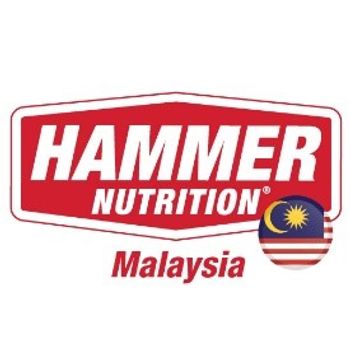
FOLLOW THIS ATHLETE-PROVEN PLAN TO STRESS LESS AND PERFORM BEST ON RACE DAY
BY STEVE BORN
We receive a lot of questions from runners looking for fueling advice for these particular events. Understanding your options will help remove the guesswork so that you can achieve more - possibly even finishing with a personal best - without fear of bonking or suffering GI issues. (For recommended fueling amounts, please see our Little Red Book/Product Usage Manual, available for free on our website.)
The weeks before the race
Successful fueling starts weeks before the race, when you "refill the tank" with quality fuel ASAP after all of your workouts. Within 60 minutes of the finish of each workout, replenish your body with Recoverite, which is ideally formulated to help build lean muscle tissue, boost immune system functioning, and increase muscle glycogen - the first fuel your body will use when you resume exercise. With smart training and recovery fueling, you can accrue up to 90 minutes of this premium, ready-to-use fuel.
Days leading up to the race
Don't make big changes to the daily diet that you've been following while in training - attempting to "front load" water, carbs, and/or sodium is ineffective and counterproductive. Continue to consume roughly 0.5-0.6 ounces per pound of your body weight, daily. If you haven't been drinking this much, don't start now - you will overwhelm your body with fluid too soon. Also do not consume extra sodium (salt) before your race. Taking in too much sodium can disrupt your body's natural ability to regulate and conserve this mineral - resulting in cramping, weakness, or worse on race day.
Night before
Very simple: Eat clean until you're satisfied, and then call it a night. You can't positively affect muscle glycogen storage the night before the race. Consume complex carbohydrates, some high-quality protein, and little or no saturated fat. Make sure your meal is low in sodium, and drink sufficient water. Skip alcohol, fatty foods, and dessert... save those "rewards" for after the race.
Morning of the race
Do not consume significant calories 3 hours prior to the race. Remember, the first fuel your body will use when the race begins is the muscle glycogen you've stored up in training through your post-workout refueling. Eating a pre-race meal at the wrong time will cause your body to burn through its finite stores of glycogen more rapidly, while also negatively impacting how well your body uses body fats for fuel.
Instead of eating anything 1-2 hours prior to your race, consume 1 serving of Hammer Gel approximately 5 minutes prior to the start. This will top off liver glycogen stores nicely and provide some calories to augment muscle glycogen stores.
In addition, drink 24-34 total ounces of water in the 2 hours prior to the start, ceasing about 30 minutes before the race.
30-45 Minutes before: Endurolytes time!
Taking a "pre-emptive strike" dose of Endurolytes (with water) before the race will provide electrolytes for at least the first hour of the race. If you are taking additional supplements, such as Endurance Amino or Anti-Fatigue Caps, take them now too.
Fueling for your race
If your race is in the 2-2.5 hour range (perhaps even slightly longer), you can go with carbs only, meaning "regular" (no protein-containing) Hammer Gel or HEED. If your race will be closer to 3 hours (or longer), you have several fueling options available. You can use:
1) Sustained Energy or Perpetuem as your primary-to-sole fuel
2) "ultra" Hammer Gels - Peanut Butter, Peanut Butter-Chocolate, or Nocciola, which contain complex carbohydrates and a small amount of protein - as your sole fuel
3) a combination of a "carb only" fuel (regular Hammer Gel or HEED) plus Perpetuem Solids
Note: Refer to Hammer Nutrition's Product Usage Manual for hourly dosage suggestions.
The reason for the protein is that around that second hour mark of exercise and beyond, a small percentage of your energy requirements will be fulfilled from protein. If you don't provide some from your fuel mix, at least part of the time, your body will cannibalize its own lean muscle tissue to obtain the necessary amino acids. This increases ammonia - a primary culprit in premature fatigue during endurance events.
How to choose
In addition to race duration, your fuel choice - and the amounts you use - should also be based on how well you digest a particular fuel during a higher-impact activity (like running), the intensity of the effort, the weather and your acclimation, and the terrain.
To determine your best race day fueling plan, consider these variables, then thoroughly test your plan in training. Testing a variety of these fueling options under a variety of conditions will give you the greatest potential for success come race day. Also, please remember that we have a skilled team of client advisors ready to help you dial in your fuel and supplement program. We're just a phone call or email away! HN




